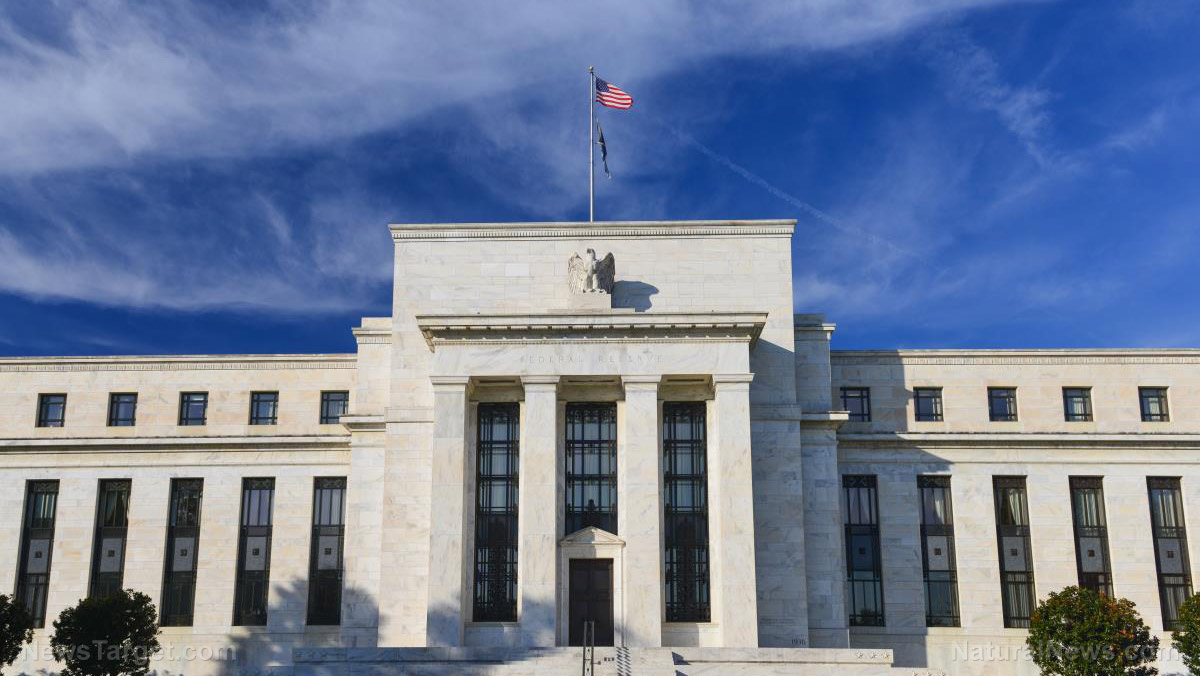Bitcoin is powered by COAL: Massive electricity usage to mine Bitcoins runs mostly on coal and pollutes the world with mercury and smog
11/30/2017 / By Ethan Huff

Because they exist fictitiously somewhere out there in cyberspace, digital cryptocurrencies like Bitcoin might seem like more eco-friendly alternatives to traditional cash. But the latest data shows that not only does “mining” Bitcoin consume unprecedented amounts of energy, but the bulk of this energy comes from coal: A highly-polluting substance that, when burned, releases mercury and a slew of other toxic heavy metals into the atmosphere.
Put out by Digiconomist, the Bitcoin Energy Consumption Index (BECI) explains how the energy needs to generate new Bitcoin now exceed that of 159 individual countries – or roughly the amount of electricity consumed by the entire country of Morocco. And it’s not clean energy that’s being consumed, but rather one of the dirtiest types in existence.
A prominent example is one of the world’s largest Bitcoin “mines,” located in the Inner Mongolia region of China. Operated by Bitmain Technologies, the mine is considered to be surprisingly inefficient due to its immense carbon footprint.
After granting special access to several media outlets back in August, the otherwise private operation has thrust into the limelight the ugly truth about what’s taking place in the world of Bitcoin mining, at least in some areas of the world. Bloomberg, Quartz, and Tech in Asia were among the reporting entities given an opportunity to have a closer look at the Mongolian mine.
They collectively found that the mine is currently comprised of eight separate buildings and an astounding 25,000 mining machines in total. There are seven buildings on the premises that house about 21,000 of the machines, all of which are used to mine Bitcoin. The other 4,000 machines are dedicated to mining Litecoin, another type of cryptocurrency.
But it’s the 21,000 Bitcoin mining machines that have become the focus of inquiring minds because these represent four percent of the processing power of the entire Bitcoin network. And how they remain powered might come as a shock to those who know little about how the system works.
“The mining machines are powered with electricity coming mostly from the nearby coal-fired power plants, and costing only four cents per kilowatt-hour after a 30% discount by the local government,” reports Digiconomist. “The total daily electricity bill amounts to roughly $39,000, meaning the facility consumes around 40 megawatts of electricity per hour.”
The energy consumed with one Bitcoin transaction is the same as powering a single-family home for a week
As impressively large as it is, the Mongolian mine admittedly represents just one small fraction of the overall Bitcoin network. But truth be told, it’s hardly the only one relying on coal to mine Bitcoin and process Bitcoin transactions. There are untold numbers of mining operations, many through coal-reliant Asia, that are contributing to the collective pollution being generated by Bitcoin.
Consider the fact that a single Bitcoin transaction consumes roughly 215 kilowatt hours (KWh) of electricity –or about the same amount of energy that an average single-family house uses in an entire week.
“Since the average American household consumes 901 KWh per month, each Bitcoin transfer represents enough energy to run a comfortable house, and everything in it, for nearly a week,” reports VICE about the immense energy burden imposed by Bitcoin.
“On a larger scale, De Vries’ index (a.k.a. Digiconomist‘s BECI) shows that bitcoin miners worldwide could be using enough electricity to at any given time to power about 2.26 million American homes.”
This is a whole lot of energy, in other words – energy that’s contributing unspeakable amounts of mercury and other toxic heavy metals into the atmosphere via coal-burning emissions. Ask yourself: Is this type of situation really sustainable in the long term?
Sources for this article include:
Tagged Under: bitcoin, Bitcoin mining, coal, cryptocurrency, electricity, electricity usage, energy, mercury, mining, smog

















